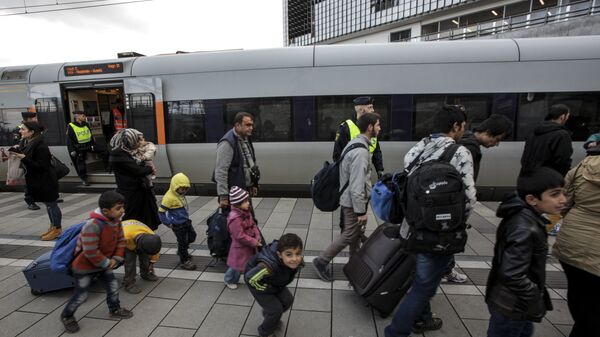As Denmark is stepping up efforts to solve the issue of rejected asylum seekers, the country's Social Democrat government is aiming to obtain data from the mobile phones of rejected asylum seekers in a bid to speed up their repatriation, TV2 reported.
According to Immigration Minister Mattias Tesfaye, many asylum seekers in Denmark have been using YouTube, Snapchat, and other means of communication to discuss their plans, possible routes, and destination countries.
"I was a little surprised when I found out that in connection with deportation we don't really use the opportunities to tap the rejected asylum seekers' mobile phones, for example to be able to establish their nationality or identity", Tesfaye explained.
The measure is only one of seven proposals that are part of a new repatriation law currently in the works. Other proposals include granting cash benefits of DKK 20,000 ($3,170) as an incentive for asylum seekers to drop their appeals with the Refugee Board and return home.
Mattias Tesfaye called the new repatriation law "one more step towards a more coherent repatriation policy", suggesting that it provides clear direction on the treatment of asylum seekers, from the moment they are rejected residence until the time they are sent home.
However, the proposed measures triggered opposition from the government's left-of-centre allies, who traditionally favour immigration. Among others, Red-Green Coalition legal and immigration spokeswoman, Rosa Lund, slammed the government's actions, arguing that the state was offering people money in exchange for their rights.
Tesfaye rejected the notion, adding that people who agree to be repatriated will get an "extra bag of money in hand" instead.
Denmark is currently estimated to have about 1,100 rejected asylum seekers pending deportation. Many of them have been living with this status for five years or more.
In neighbouring Sweden the situation is even worse, as the police and the immigration authorities there have repeatedly admitted losing track of rejected asylum seekers, many of whom vanished in parallel societies or joined the underworld living under multiple identities.
During the 2015 refugee crisis, almost 163,000 people sought asylum in Sweden, most of them men from countries such as Syria, Afghanistan, and Iraq. Today, more than half of them have received a residence permit. However, a large group is left in the country without a permit or missing, national broadcaster SVT reported. Whereas wholly 98,500 of the 2015 arrivals received a residence permit, about 10,000 remain in Sweden without a permit and at least 14,000 are registered as missing, with the authorities oblivious as to their whereabouts.




